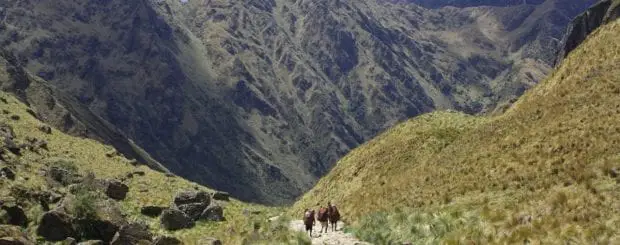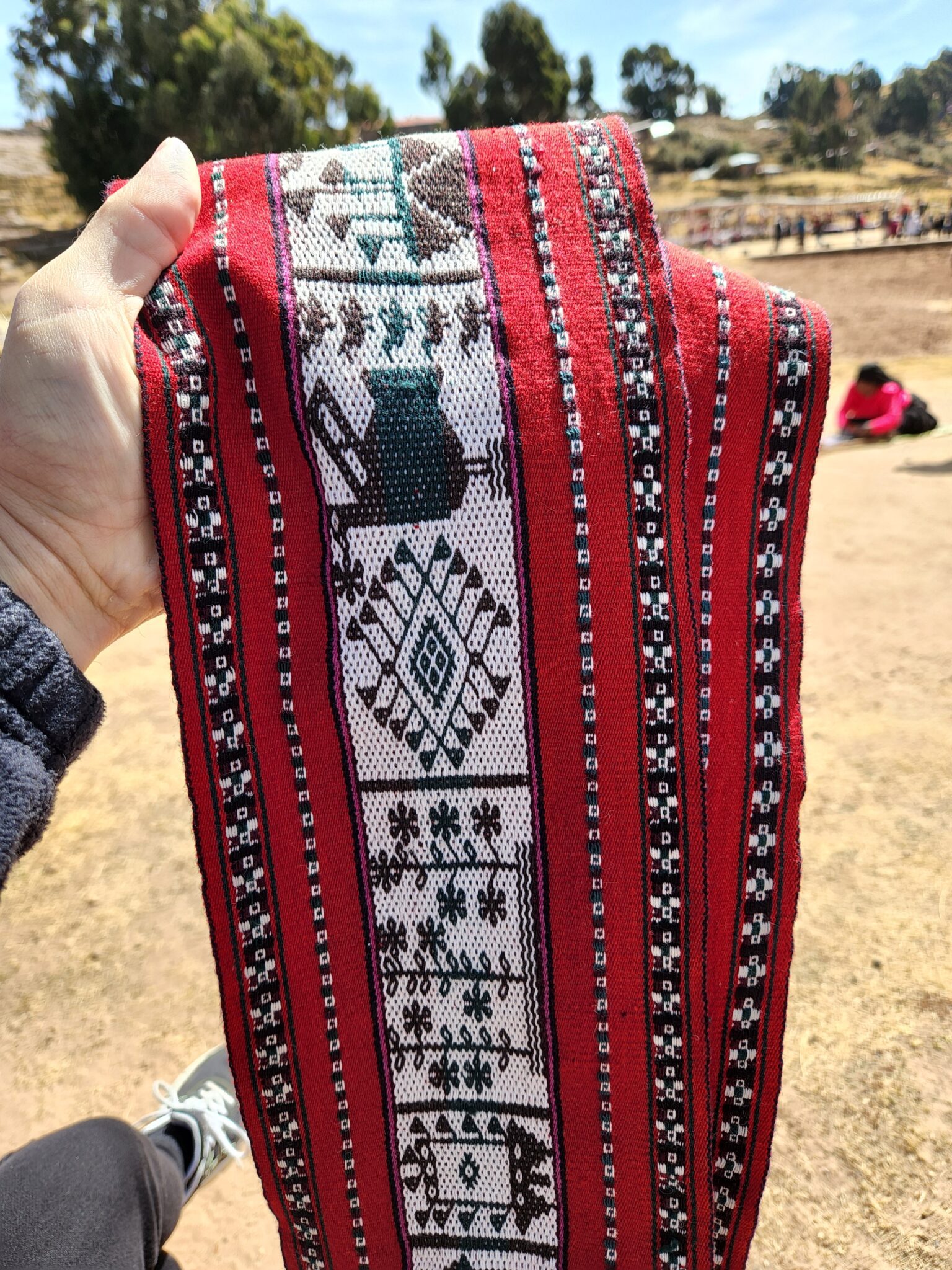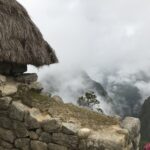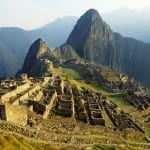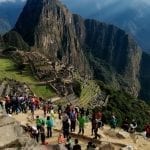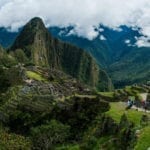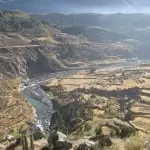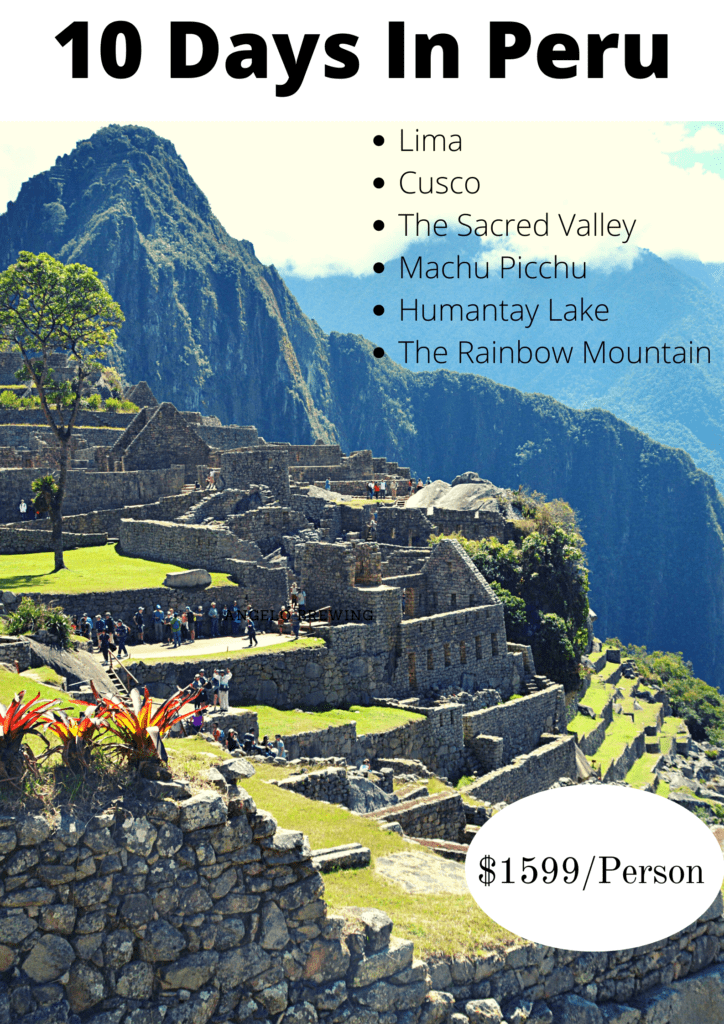Inca Trail Porters
James Bustamante is Native to New York but born to Peruvian parents. He has been traveling throughout Latin America since early 2003 and finally made his home in Peru. James has made his way by eating and traveling through almost every country in Central and South America.
Last Updated on January 12, 2024 by James Bustamante
Inca Trail porters are some of the most important members of the hiking group leading to Machu Picchu. Typically Peruvians that are native to Cusco and the surrounding towns, porters for the Inca Trail take care of carrying camping equipment as well as food supplies for the trekking group.
The Inca trail travelers book through Peru Tour Packages doesn’t generally include personal porters. Personal Inca Trail porters will carry your backpack and other equipment you might not want to carry yourself. Generally, personal porters are reserved for elderly hikers or someone with a physical impediment and can’t manage a backpack.
Going back to porters for camping equipment. Your assigned Inca Trail porters are outstanding individuals who will support you along the 28-mile trek leading to Machu Picchu.
As the Peruvian government considers the Inca Trail the “official” trail, special rules and regulations were implemented to ensure its continuous use.
Inca Trail Porters are essential because new regulations prohibit the use of horses/mules on the trail. As of 2019, MINCETUR (Ministry of Tourism) carried out a study on foot and hoof traffic on the famous route to Machu Picchu.
The results stated that the hooves of pack animals are hard on the Inca Trail’s stone-cobbled steps and path, so they are no longer allowed. This is where the Inca Trail porters became so crucial to one of the most popular hiking routes in the world.
How do Inca Trail Porter’s Help?
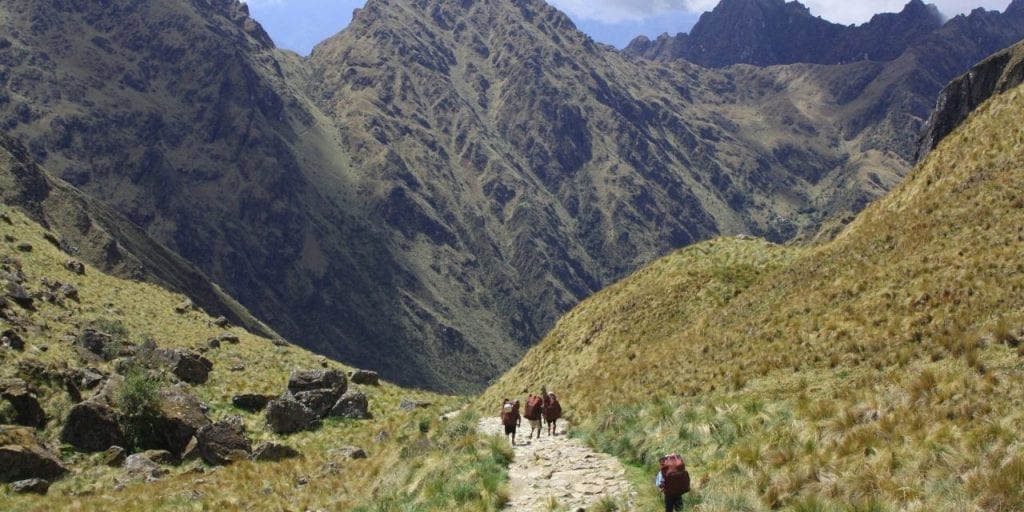
Inca Trail porters are very determined individuals who must walk long distances while wearing a full pack, take care of travelers, and help set up campsites.
Through rain or shine, these pros are up to the task to help make sure everything goes according to plan. Journey Machu Picchu porters are proven professionals from the Pisaq district in Calca, where many locals learn how to become certified Inca Trail porters.
This small community has a long history of providing hiking tour guides and some of the best Machu Picchu Tour guides.
Inca Trail Porter Protection
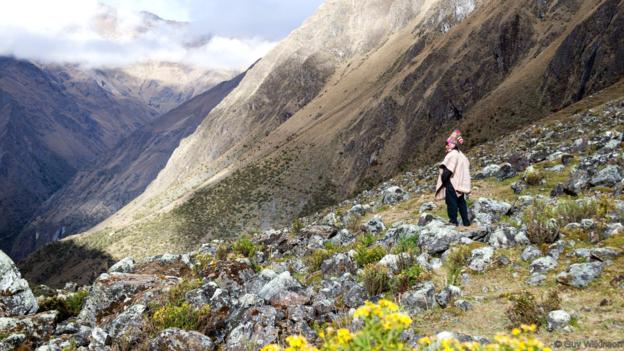
As with many jobs, work standards had to be guaranteed for Inca Trail Porters. This is why the Porter Protection Law was implemented to ensure that all porters receive adequate clothing and equipment, a mandated minimum wage per day, and a maximum load limit of 20 kg (44 lbs).
The National Superintendency of Labor Inspection, or SUNAFIL, does random audits of agencies yearly to check if they comply with this law.
Sunafil Website: https://www.sunafil.gob.pe
Inspections are carried out throughout the Inca Trail to ensure these standards are followed. These checkpoints check trail permits and weigh everything the porters carry to ensure their packs don’t exceed the legal limit.
If anything is not up to par, the tour operator will receive a fine, with enough penalties even leading to losing the company’s Inca Trail license.
Other provisions include accident insurance and education services, where Inca Trail porters and tour guides receive training workshops and personal growth training. Highly skilled coaches provide these classes to help them improve their work performance.
Certified Peru Tour Operators
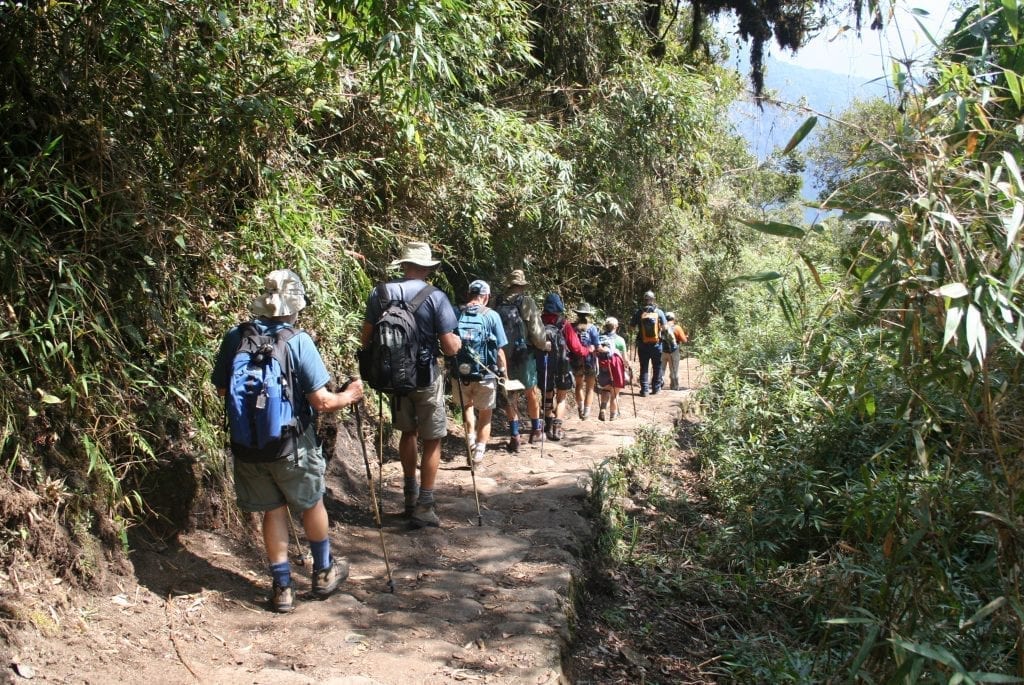
Always book your tour through a certified tour operator (authorized by the Peru Ministry of Foreign Trade and Tourism). Only Peruvian-owned tour operators, like the Journey Machu Picchu travel Agency, receive an exclusive license from the government each year.
Ensure you check for what Peru’s Protection law, establishes, as many tour operators do not cover and provide ethical practices.
Ensure they work with local Andean communities as they are the most experienced in the matter and guarantee a certain level of expertise.
Pricing for Inca Trail Porters?
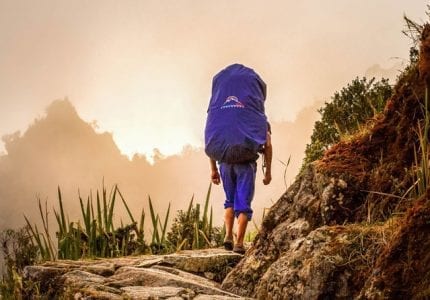
No matter who you book the Inca Trail with, you should always ensure that porters are paid appropriately, as some operators may pay below minimum wage.
This is a definite red flag to look out for, as this could affect your trip. Any tour operator offering lower pricing for porters most likely cuts some corners with payment or supplies; they also do not provide appropriate support and protection for their workers.
Sometimes, you’ll see prices that almost seem too good to be true, mainly if you find any 4-day or 5-day trek for less than $600.
Another point to consider is the number of porters traveling with your group. If you have a group of 10 or more, you should have at least 2 or 3 porters for every couple of trekkers (for camping equipment), with extra porters provided if you wish for your things to be carried.
The number of porters on a trek depends on the size of the group. So, how do you reserve personal Inca Trail Porters?
Reserving a Porter for The Inca Trail
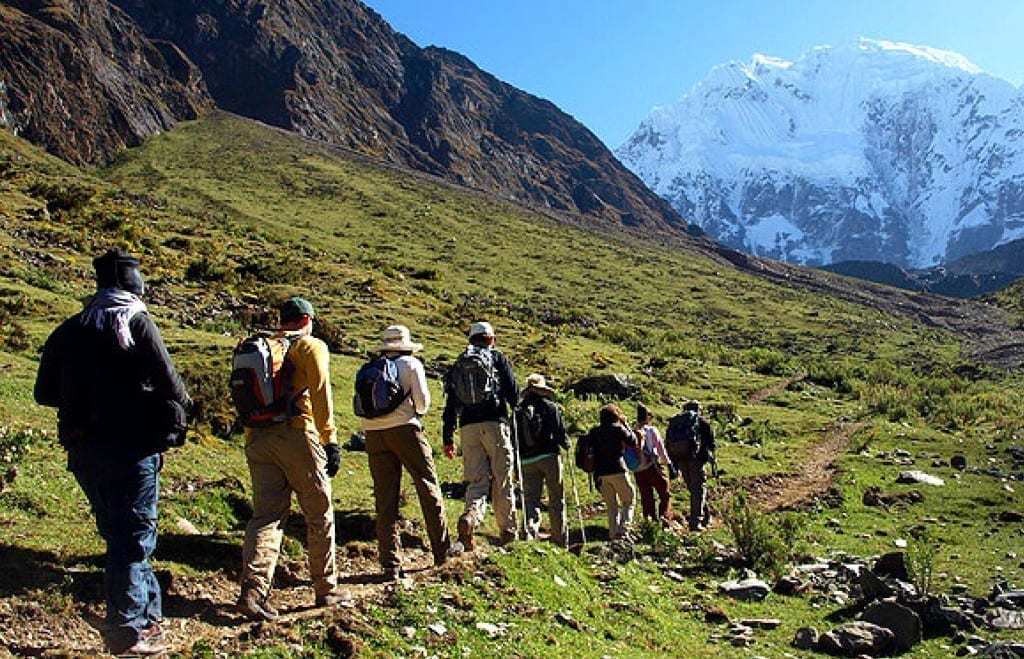
Suppose you wish to have extra help while on the trail; you can reserve one to carry your personal things. This porter can take about 8 kg (18 lbs) or 15 kg (33 lbs) of your belongings.
This, of course, is not mandatory, but we highly recommend it as it helps you enjoy the trail a lot more when you don’t have to worry about your things.
If you do decide to add a personal porter, make sure that you let your Travel Advisor know before you book your Inca Trail permit(s).
As you may or may not know, the Peruvian government limits the number of trail permits to only 500 per day, including all porters and staff taking the trail daily, leaving only around 300 for the general public.
Extra porters make up around another 100 spots per day, so you must reserve them well in advance. Certified porters receive special pricing for entrances to the Inca Trail and Machu Picchu.
Your payment will also cover their food, equipment use, and salary. Of course, you can also give them an extra tip while on the trail.
Tipping Your Inca Trail Porter
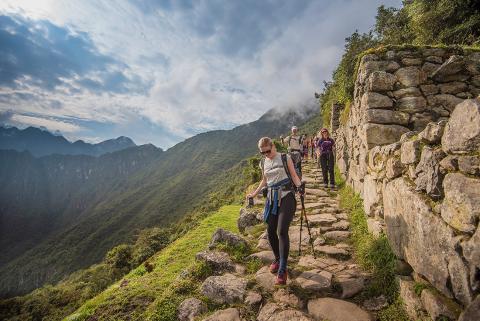
Porters are an absolute must-have while on the Inca Trail; they provide every traveler’s support, and tipping is a great way to show appreciation.
Tipping is also an excellent way to thank your porters and trekking team for a well-done job. Tips are voluntary, and the amount is up to your discretion.
It is customary to tip on the last night as well as to give thanks for all the help given by the porters as well as by the cook. We recommend providing a $20- $25 tip for each porter and $30 for the cook.
Now that you have a wealth of knowledge on reserving and treating your porters, follow these standards as best you can.
If you want to know more about Peru, Cusco, and Machu Picchu Travel, check out the rest of our blog posts at Peru Travel Blog and follow us on Facebook and Instagram for our special packages.
Frequently Asked Questions About Inca Trail Porters
What do Inca Trail porters do?
Certified Inca Trail porters will take all camping and cooking equipment while on the trail. Private porters can be hired to carry personal belongings.
Where can I hire a porter?
You can hire a porter directly through your tour operator
How can I hire a porter?
You must tell your travel advisor that you want to reserve an additional private porter for the duration of the Inca Trail.
Should I tip a porter?
Tipping a porter is not an obligation. However, if you wish to show some appreciation for their services then feel free to provide a generous tip.
How much should I tip a porter?
You should tip your porter around $20 to $25.
How can I book the Inca Trail?
You can book the Inca Trail through Journey Machu Picchu.
When should I book the Inca Trail?
The best time of the year to book the Inca Trail is usually during the months of May to July (dry season).
